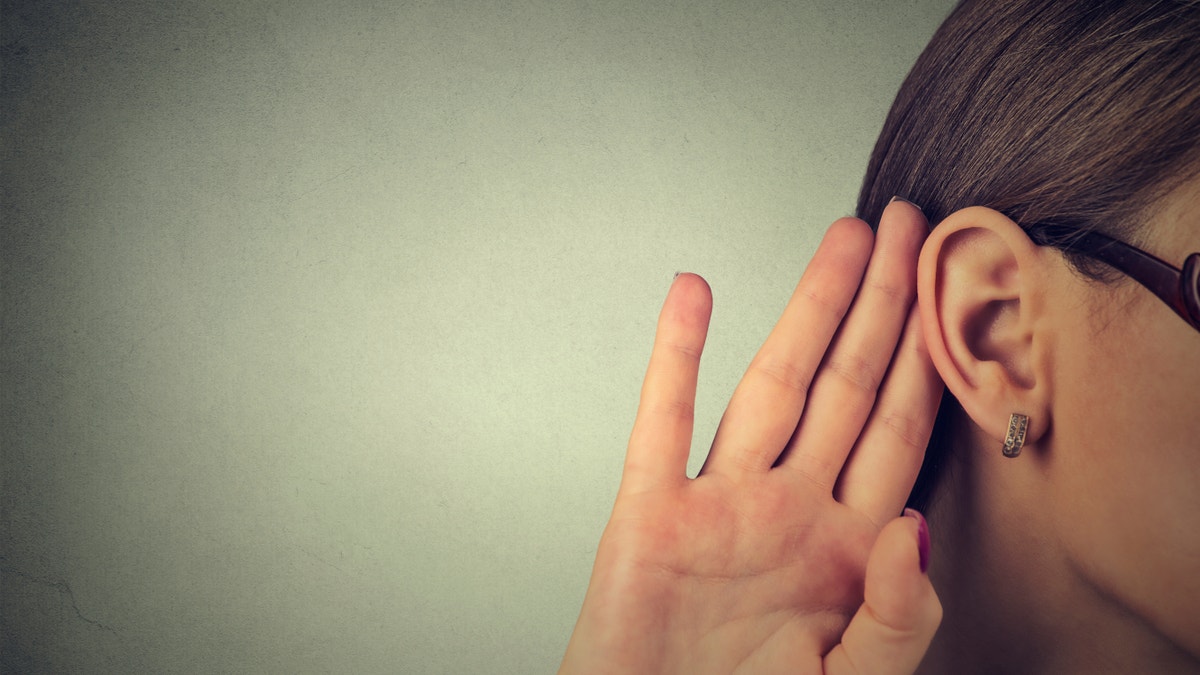
Woman holds her hand near ear and listens carefully isolated on gray wall background (iStock)
Many people have trouble understanding conversations in noisy situations. Scientists are beginning to understand why.
The problem is sometimes called “hidden hearing loss”: Standard hearing tests don’t measure it, and sufferers are often told their hearing is normal. But the distress they feel struggling to discern what others are saying in crowded restaurants and business meetings is real.
Now there’s growing evidence that the causes of problems processing speech amid noise are different than the causes of problems hearing sound. Scientists believe exposure to loud noises can erode the brain’s ability to listen selectively and decode words, without causing traditional hearing damage. Difficulty understanding speech amid noise can set in long before traditional hearing loss.
“This is something we’ve recognized for a long time—and this research tells us why it’s happening,” says Anne Oyler, associate director for audiology at the American Speech-Language-Hearing Association. “Audiologists will have to start actively looking for this disorder.”
Hearing loss in adults is usually associated with damage to the tiny hair cells that line the inner ear and transfer sound signals to nerve fibers that lead to the brain. Aging, trauma and noise exposure can all cause those hair cells to deteriorate.
